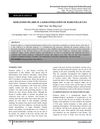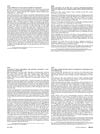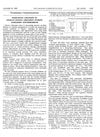 March 2024 in “Jordan Journal of Biological Sciences”
March 2024 in “Jordan Journal of Biological Sciences” The Pamona community uses 21 types of mushrooms for food, medicine, and other needs, highlighting the importance of conserving these resources.
[object Object]  February 2024 in “Journal of Paediatrics and Child Health”
February 2024 in “Journal of Paediatrics and Child Health” Hormonal changes and social stress may link lupus and eating disorders in teens.
November 2023 in “Children” Many pediatric epilepsy patients experience preventable severe adverse drug reactions, especially with certain medications and risk factors.
 May 2023 in “Elsevier eBooks”
May 2023 in “Elsevier eBooks” Some nutritional supplements may help thicken hair in people with hair loss, but taking too much can cause side effects.
 March 2023 in “International journal of integrated medical research”
March 2023 in “International journal of integrated medical research” Keratosis pilaris is a common skin condition where hair follicles get clogged with keratin, mostly on the arms and thighs.
 September 2022 in “International journal of infectious diseases”
September 2022 in “International journal of infectious diseases” A woman with a rare scalp infection was cured after one month of medication.
 June 2015 in “Journal of the turkish academy of dermatology”
June 2015 in “Journal of the turkish academy of dermatology” Eating the right foods is important for skin health and can help treat some skin conditions.
 June 2012 in “Springer eBooks”
June 2012 in “Springer eBooks” Eating disorders can cause various hair problems, and while hair loss in these disorders is linked to metabolic syndrome, treatment focuses on specific medications and lifestyle changes for the syndrome.
 1 citations,
January 2009 in “Elsevier eBooks”
1 citations,
January 2009 in “Elsevier eBooks” Anorexia Nervosa and Bulimia Nervosa are complex eating disorders with increasing incidence among young females, significant morbidity, and varying mortality rates, requiring more research for better treatment.
[object Object]  April 2016 in “Journal of The American Academy of Dermatology”
April 2016 in “Journal of The American Academy of Dermatology” A child on life support experienced rapid hair loss due to severe illness affecting hair growth.
 1 citations,
January 1996 in “Springer eBooks”
1 citations,
January 1996 in “Springer eBooks” Diet affects baldness; eat balanced, less animal fat, more fruits, vegetables, and cereals.
 13 citations,
February 2007 in “British Journal of Dermatology”
13 citations,
February 2007 in “British Journal of Dermatology” EF and PXE not closely related.
 1 citations,
November 1994 in “JAMA”
1 citations,
November 1994 in “JAMA” The document praises a resource on hair growth disorders and recognizes a reference on blood diseases' molecular aspects as authoritative.

The book is a detailed guide on hair growth issues and treatments, recommended for specialists and hospital libraries.
 98 citations,
October 2012 in “Dermatologic Clinics”
98 citations,
October 2012 in “Dermatologic Clinics” Eating the right nutrients can improve hair health, but taking extra supplements usually doesn't help unless you have a deficiency.
 239 citations,
July 2002 in “Clinical and Experimental Dermatology”
239 citations,
July 2002 in “Clinical and Experimental Dermatology” Low iron and L-lysine levels can cause hair loss in women, and increasing these nutrients can reduce hair shedding.
 58 citations,
October 2001 in “Dermatologic Clinics”
58 citations,
October 2001 in “Dermatologic Clinics” Hair loss can indicate underlying systemic diseases and addressing these can sometimes reverse the hair loss.
 26 citations,
November 1968 in “The Lancet”
26 citations,
November 1968 in “The Lancet” Malnourished Andean Indian children had abnormal hair roots compared to healthy children.
 11 citations,
October 2015 in “Journal der Deutschen Dermatologischen Gesellschaft”
11 citations,
October 2015 in “Journal der Deutschen Dermatologischen Gesellschaft” Women who had bariatric surgery risk nutritional deficiencies causing skin issues during pregnancy and breastfeeding.
 8 citations,
September 2019 in “Eating and Weight Disorders - Studies on Anorexia, Bulimia and Obesity”
8 citations,
September 2019 in “Eating and Weight Disorders - Studies on Anorexia, Bulimia and Obesity” A woman with anorexia nervosa improved after treatment for pellagra, reminding doctors to check for this deficiency in patients with eating disorders.
 2 citations,
July 2018 in “Elsevier eBooks”
2 citations,
July 2018 in “Elsevier eBooks” Some supplements may help with hair loss, but there's not enough strong evidence to recommend them without doctor advice.
 2 citations,
January 2012 in “Hair therapy & transplantation”
2 citations,
January 2012 in “Hair therapy & transplantation” Low serum ferritin levels are not closely linked to telogen effluvium in women.
 1 citations,
February 2023 in “Digestive diseases and sciences”
1 citations,
February 2023 in “Digestive diseases and sciences” Gastroparesis may cause hair loss due to micronutrient deficiencies, and multivitamins might help.
 1 citations,
April 2021 in “Current Stem Cell Reports”
1 citations,
April 2021 in “Current Stem Cell Reports” Eating less can improve stem cell function and increase lifespan.
 October 2023 in “International journal of science and research”
October 2023 in “International journal of science and research” Ayurvedic treatments can effectively regrow hair in Alopecia Areata without side effects.
 September 2022 in “JAMC. Journal of Ayub Medical College, Abbotabad, Pakistan/Journal of Ayub Medical College”
September 2022 in “JAMC. Journal of Ayub Medical College, Abbotabad, Pakistan/Journal of Ayub Medical College” A boy with a rare skin condition improved quickly after starting zinc supplements.
 July 2015 in “Actas Dermo-Sifiliográficas”
July 2015 in “Actas Dermo-Sifiliográficas” A woman experienced excessive hair growth after using a hair loss treatment with minoxidil.
 January 2015 in “Springer eBooks”
January 2015 in “Springer eBooks” Chronic kidney disease can cause hair loss, which may be related to zinc deficiency or certain medications, and sometimes hair grows back when the underlying issue is treated.

A young woman with kidney failure had hair loss due to a common hormonal disorder, which improved with hormone therapy.
 June 1989 in “Diseases of the Colon & Rectum”
June 1989 in “Diseases of the Colon & Rectum” Some patients experience temporary hair loss after ulcerative colitis surgery, likely due to illness rather than the surgery itself, and it usually grows back within six months.




























